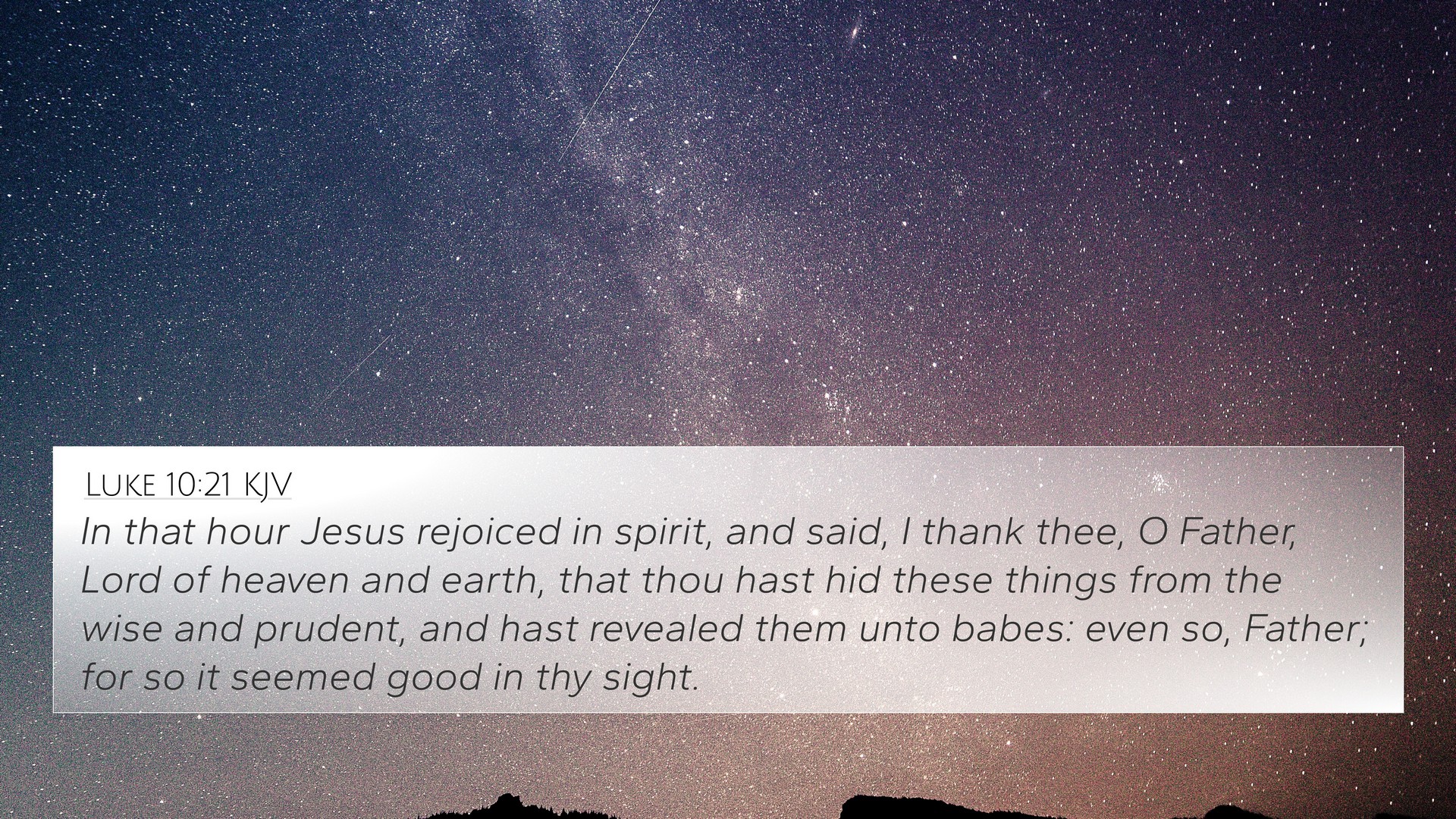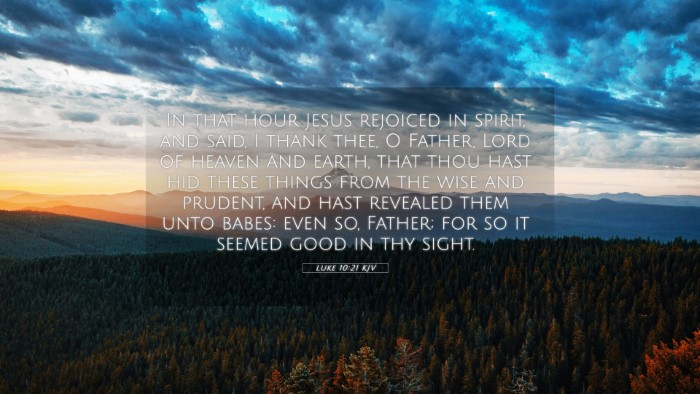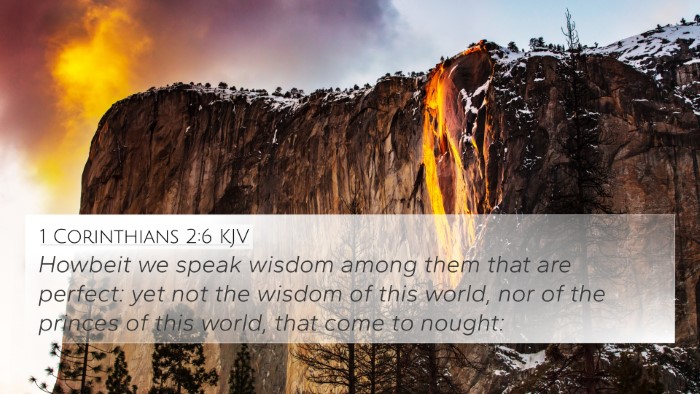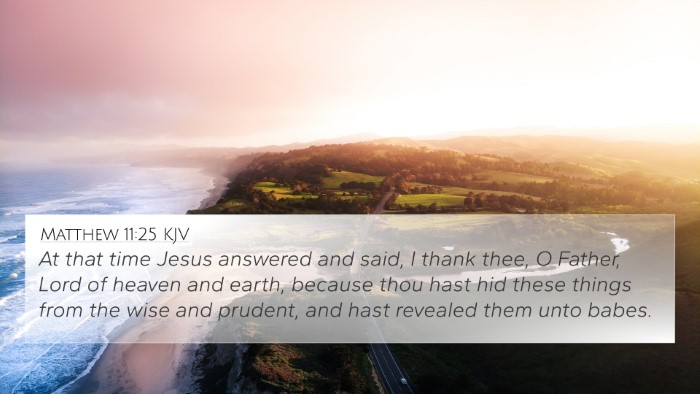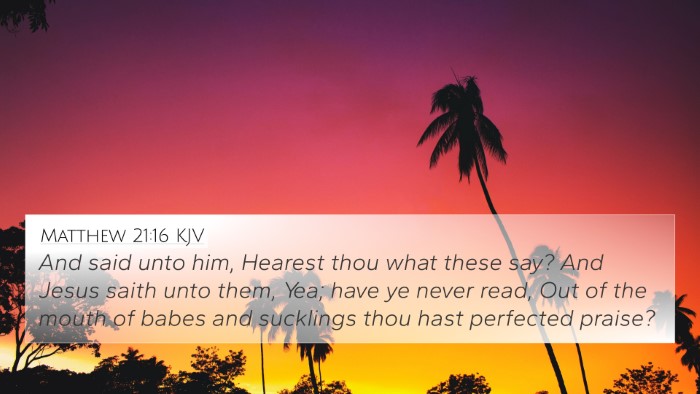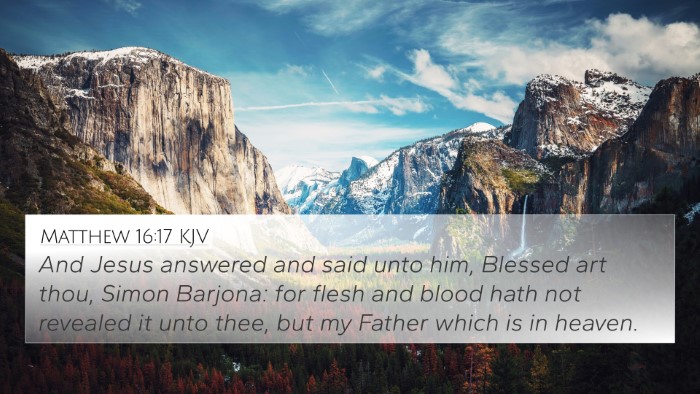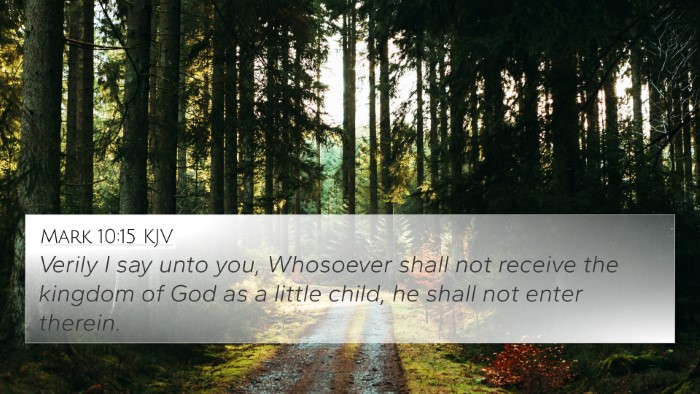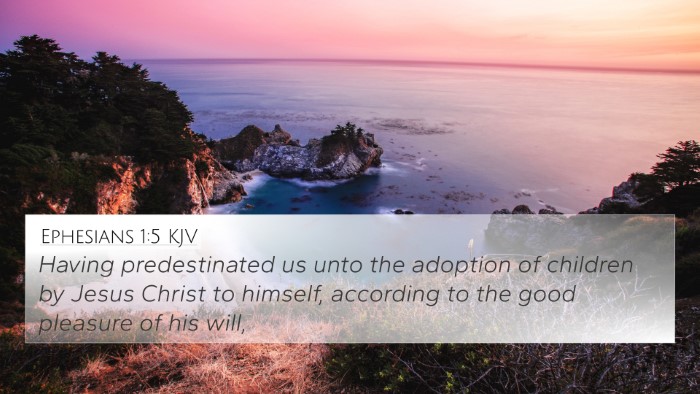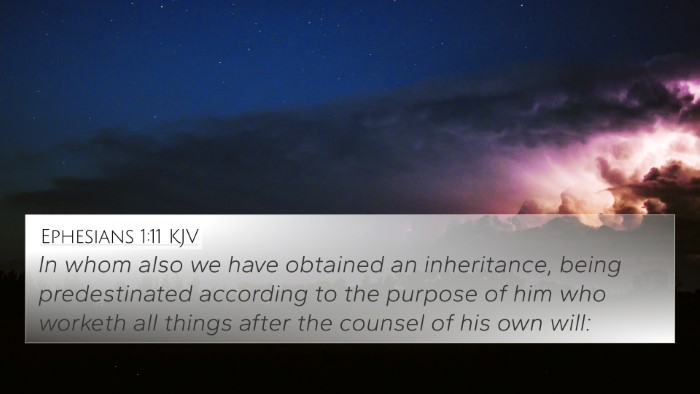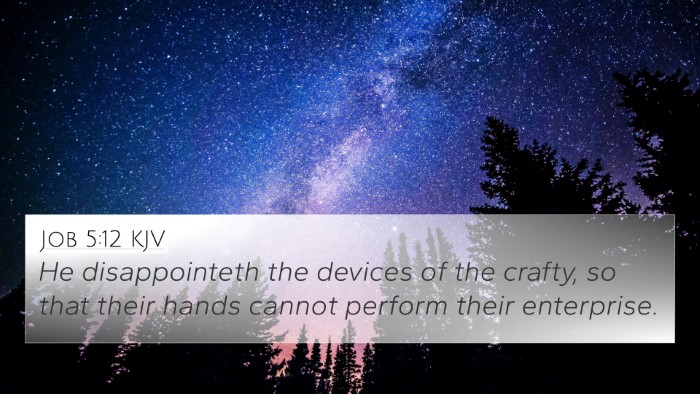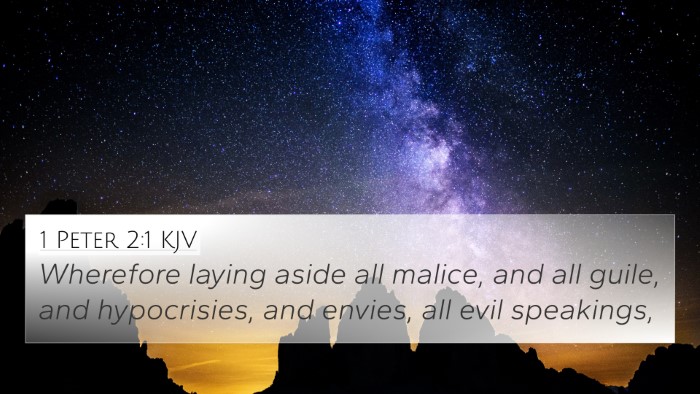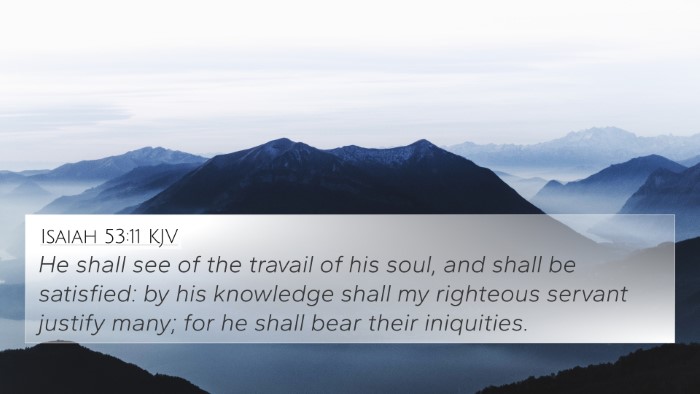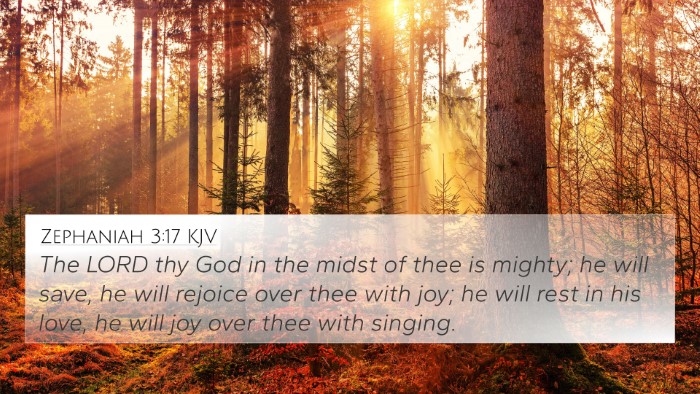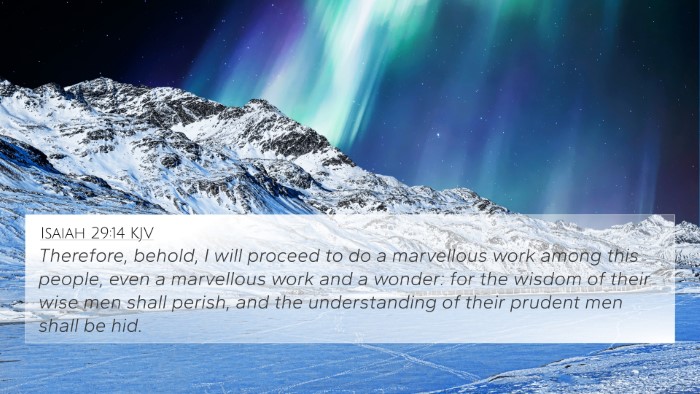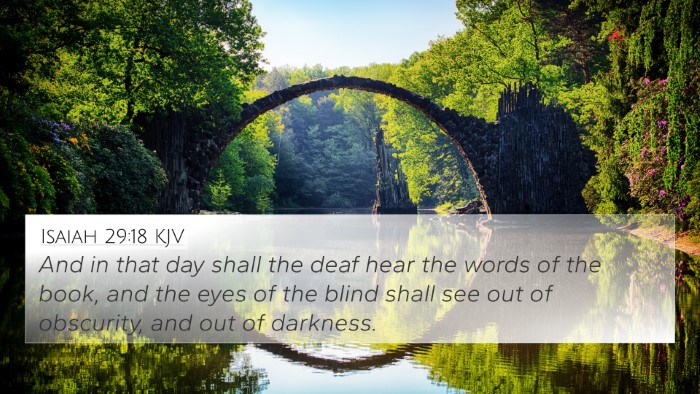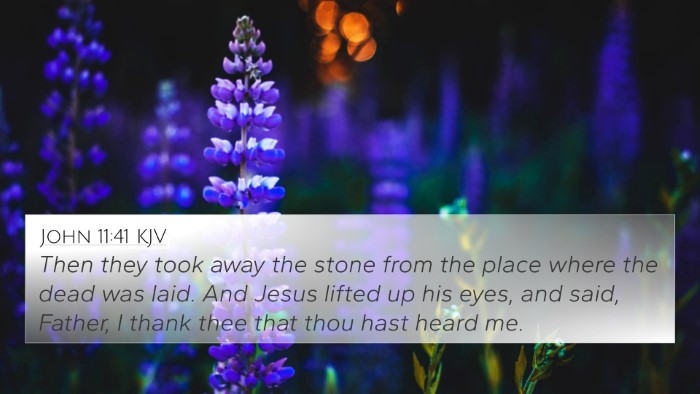Understanding Luke 10:21
In Luke 10:21, we find a profound moment where Jesus expresses joy and gratitude to the Father for revealing spiritual truths to the humble and childlike, while hiding these truths from the wise and learned. This passage serves as a cornerstone for understanding the nature of divine revelation and the characteristics of those who receive it. Below, we explore the meanings and interpretations of this verse, cross-referencing it with related scripture for a deeper understanding.
Verse Text
Luke 10:21 (KJV): "In that hour Jesus rejoiced in spirit, and said, I thank thee, O Father, Lord of heaven and earth, that thou hast hid these things from the wise and prudent, and hast revealed them unto babes: even so, Father; for so it seemed good in thy sight."
Contextual Analysis
In the broader context of Luke 10, Jesus had sent out the seventy disciples to preach the Good News. Upon their return, they expressed joy in their successful ministry (Luke 10:17). This moment of joy sets the stage for Jesus’ rejoicing in the spirit and thanking the Father, highlighting a divine partnership in revealing truth to the lowly.
Matthew Henry's Commentary
Matthew Henry emphasizes the importance of humility in spiritual understanding. He notes that the "wise and prudent" often rely on their intellect and wisdom, which can cloud their perception of divine truths. In contrast, those who approach God with child-like faith are more receptive to His revelations. Henry points out that God's ways are often hidden from those who are self-sufficient, while the humble receive grace and wisdom freely.
Albert Barnes' Commentary
Albert Barnes elaborates on the nature of God's sovereignty in revealing spiritual truths. He remarks that the phrase "revealed them unto babes" symbolizes those with simplicity and openness to faith. Barnes draws connections to the idea that true understanding of the kingdom of heaven is not attained through scholarly pursuit but through a personal relationship with God characterized by trust and humility. His commentary further affirms that this principle reflects God's wisdom in choosing the seemingly foolish methods to confound the wise (1 Corinthians 1:27).
Adam Clarke's Commentary
Adam Clarke highlights the scholarly undercurrent within this verse, noting that Jesus' audience included those who would have seen themselves as learned and wise according to societal standards. Clarke's interpretation suggests that true knowledge of God is intertwined with humility, as those who believe themselves wise often miss the marks of divine truth. He also references the idea that God has a divine prerogative to choose whom He reveals His mysteries to, encouraging a posture of openness among believers.
Key Themes in Luke 10:21
- Divine Revelation: The selective revelation of God’s truths to the humble.
- The Role of Humility: A call for childlike faith and reliance on God.
- God’s Sovereignty: God’s choice of whom to reveal Himself to.
- Contrasting Wisdom: The distinction between human wisdom and divine knowledge.
Related Bible Cross-References
- 1 Corinthians 1:27-29: God chooses the foolish to shame the wise.
- Matthew 11:25: Jesus thanks the Father for revealing truths to the childlike.
- James 4:6: God resists the proud but gives grace to the humble.
- Proverbs 3:34: Wisdom is granted to the humble.
- Psalm 25:9: He guides the humble in what is right.
- Matthew 18:3: One must become like children to enter the kingdom of heaven.
- Isaiah 57:15: God dwells with the humble and contrite in spirit.
Practical Implications for Believers
This verse teaches us the significance of humility in our spiritual journey. Believers are reminded to approach God with the openness of a child, acknowledging their need for Him and His guidance. The insights gained from this scripture challenge us to reflect on our own reliance upon wisdom, cultivating a heart that is receptive to divine truths. The collaborative joy in Jesus' relationship with His Father serves as a model for our communication and gratitude in prayer.
Conclusion
Luke 10:21 stands as a profound reminder of God’s grace and the nature of His revelation. As we reflect on this passage and cross-reference it with various Biblical texts, we can appreciate the beauty of divine knowledge that transcends human wisdom. For those eager to find connections between Bible verses, this passage exemplifies how scripture engages deeply with themes of humility, understanding, and divine truth. May we strive to cultivate an attitude of humility in our faith, allowing God's revelations to transform our hearts and minds.
